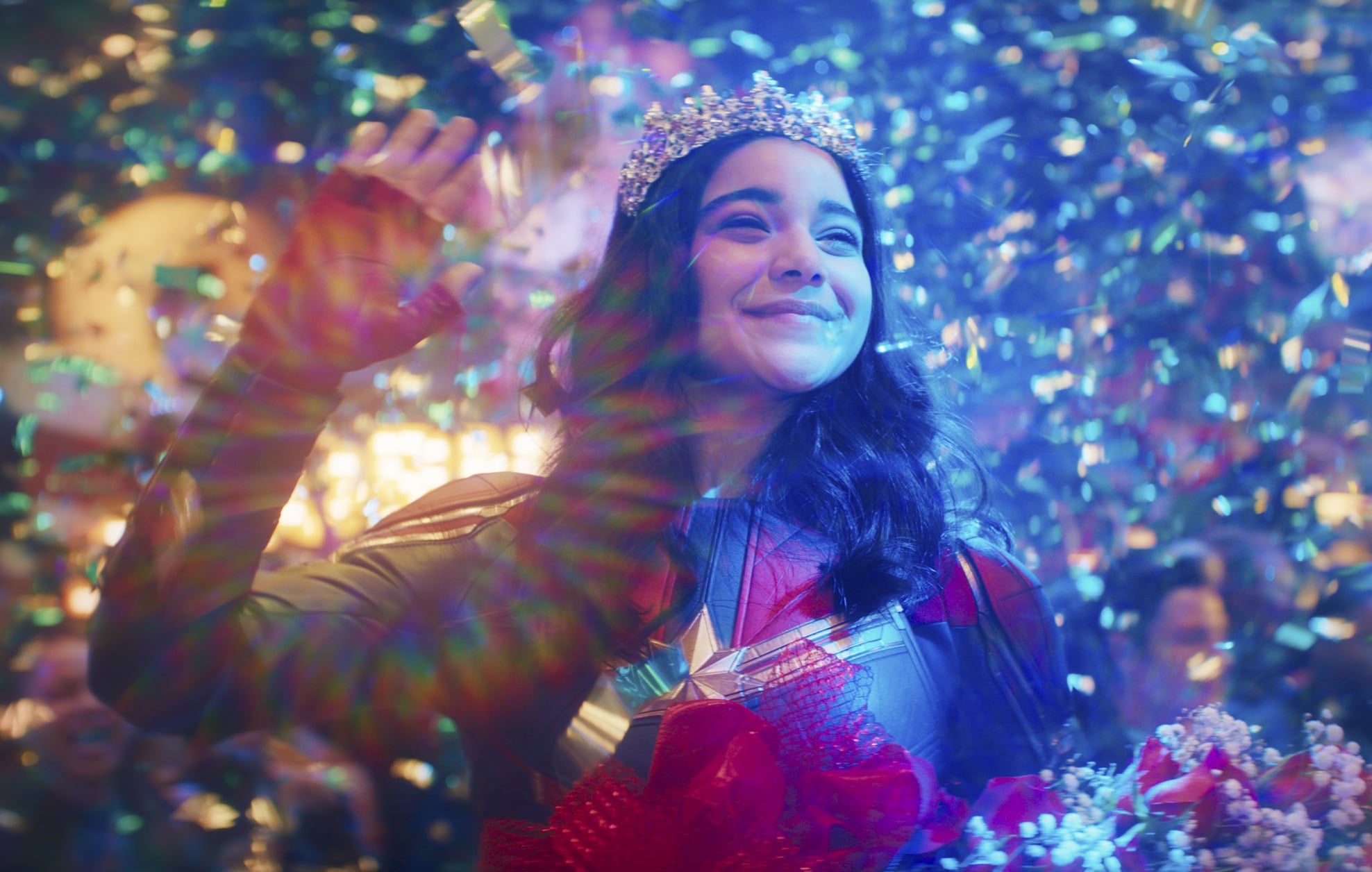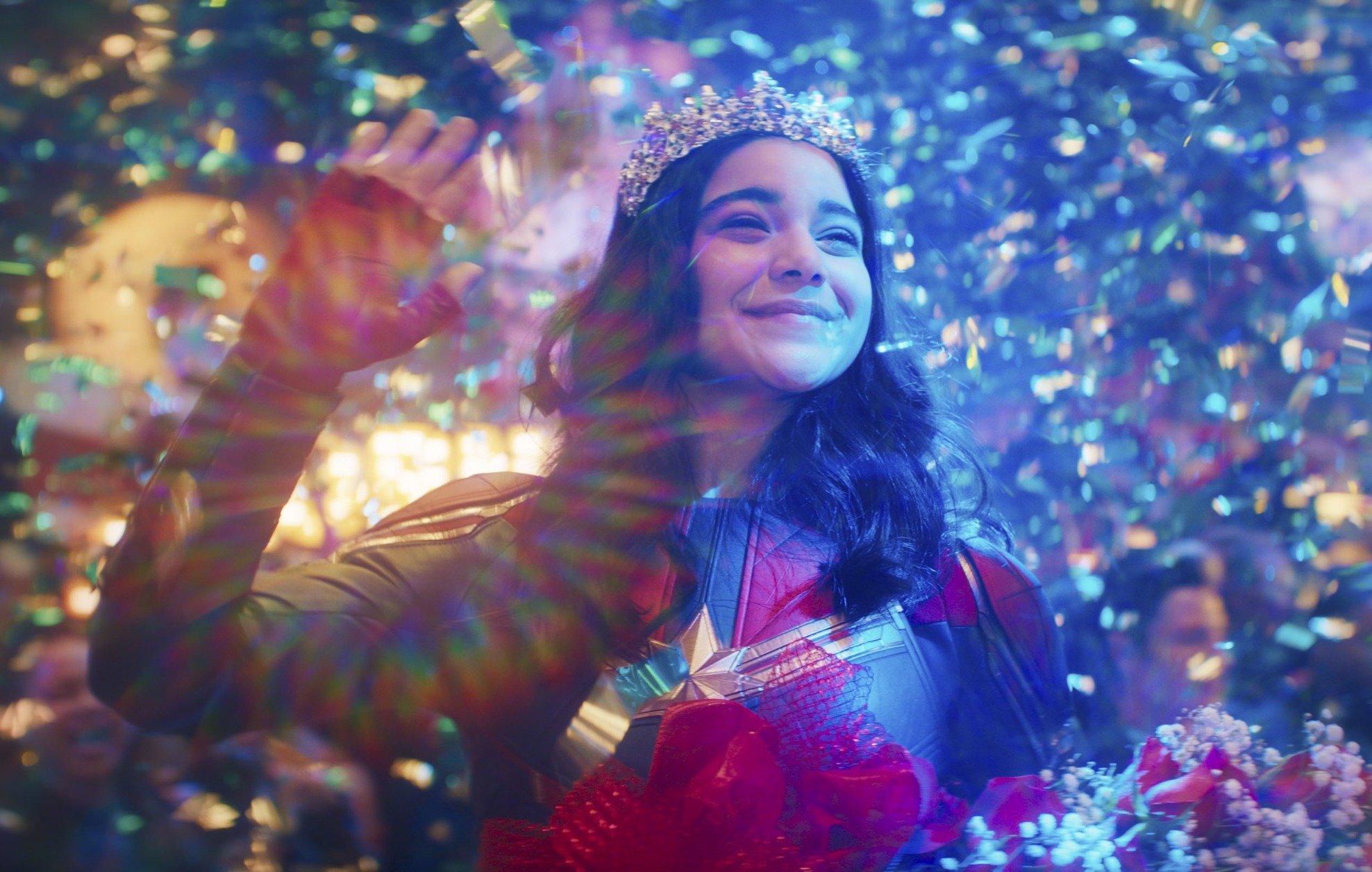
Why ‘Ms. Marvel’ Connects Kamala to the Partition of India and Pakistan
Ms. Marvel Episode 4 takes Kamala Khan (Iman Vellani) to Karachi, where she discovers more about her family’s history and their survival during the Partition of India and Pakistan. The Marvel series depicts this pivotal time in the two countries’ history. And according to creator Sana Amanat, Kamala is connected to the Partition to learn who she is and where she stands.

‘Ms. Marvel’ puts Kamala Khan in the middle of a Partition story
In Episode 4 of Ms. Marvel, Kamala visits her grandmother Sana (Samina Ahmed) in Pakistan where she learns of her family’s history. The show touches on the real-life Partition of India.
In 1947, after British rule ended in India, the country was divided. Certain provinces, like Punjab, were split so they could be a part of the new country of Pakistan. Hundreds of thousands of families were displaced and had to leave their homes and loved ones behind to move to one side of the border or the other.
Amanat, who loosely based Kamala’s story on her own life growing up as a Pakistani Muslim in New Jersey, recently revealed that she connected the superhero to the Partition to give her a sense of identity.
“Ultimately, this is a story about identity,” Amanat told EW. “How do you understand your identity without understanding what home is and what home means to you?”
“I think everyone should analyze their relationship to the place in which they are residing, to the place in which their families have come from, and the history behind all of it … That really gives you, not necessarily a sense of who you actually are, but it gives you the tools to be able to decide what kind of person you want to be.”
‘Ms. Marvel’ points out the forgotten moments of the Partition
In her chat with EW, Amanat talked about how generations of Kamala’s family were affected by the Partition, especially her great-grandmother, grandmother, and mom. And she noted that oftentimes when the historic event is referenced, women’s stories are left out.
“[The] Partition, really did lay out a lot of loss and trauma,” Amanat explained.
“I think also in any type of big, traumatic, historical events, the women are forgotten. You talk about the men, but the women are sort of forgotten. These are sort of the remnants of kind of what’s left after a moment like that and how the relationships are affected by it.
The ‘Ms. Marvel’ villains, The Clandestines, symbolize sentiments of displacement
In Ms. Marvel Episode 3, Kamala meets her nemeses, the Clandestines. They reveal that they were exiled from their parallel dimension, and are just looking for a way back home.
As explained by Amanat, the villains may be ruthless. But at the end of the day, they’re just trying to get a sense of belonging — similar to what some displaced people may feel in real-life.
“The Clandestines are an interesting foil in that regard because you are talking about people being displaced, and then there are these people, and here’s how they interpret their displacement,” Amanat said in her chat with EW. “There’s a much larger metaphor there and I want to see what people think of it.”
Ms. Marvel airs Wednesdays on Disney+.


